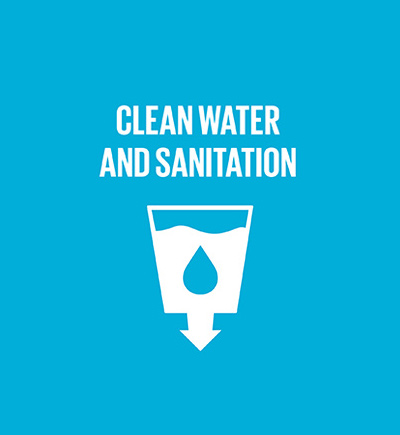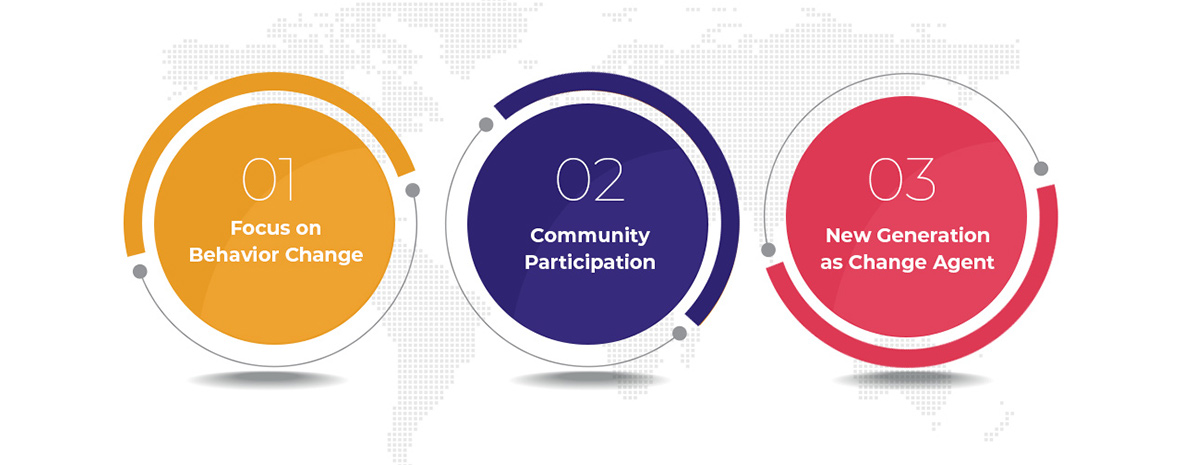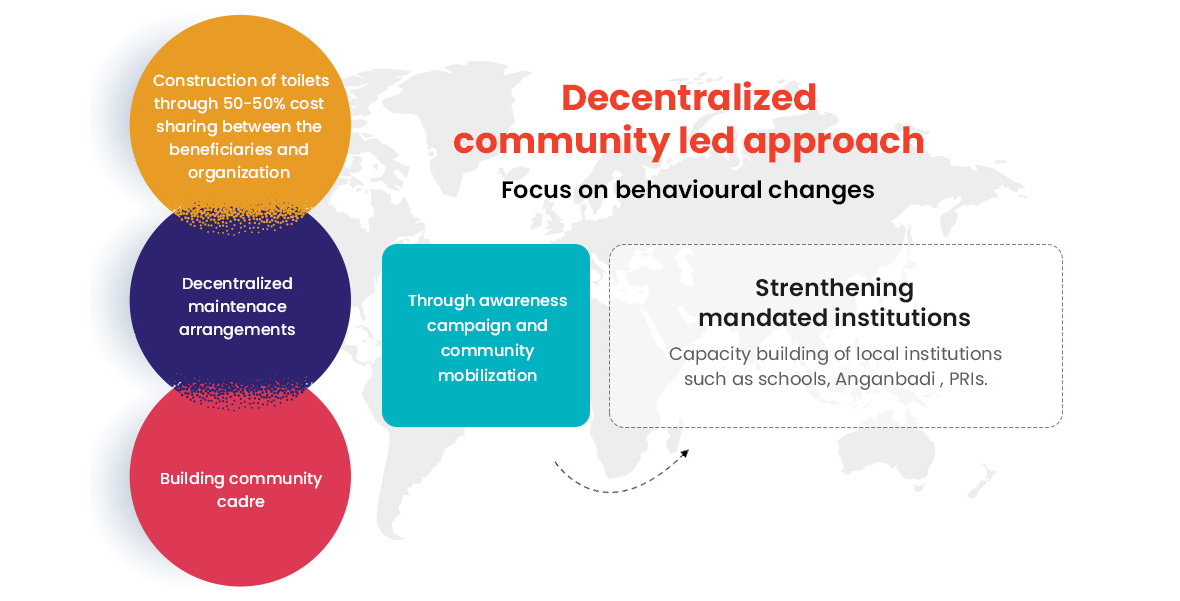
Universal, affordable and sustainable access to Water, Sanitation and Hygiene- WASH is the focus of Sustainable Development Goal 6 and major global public health issue. Our country faces significant challenges in the provision of quality water, sanitation, and hygiene. More than 90% of urban residents accessing sanitation facilities compared to only 39% in rural India.
Our WASH initiatives aim to ensure access of a majority of the community to safe drinking water and safe sanitation for better health and environment. MVT capacitate community leaders and motivate people to sustainably manage water projects and take action to improve the sanitation and personal hygiene related practices.
Our Approach :
Focus on Behavior Change
Our WASH projects put great emphasis on bringing behavioural change in the community. Hence include a lot of awareness and sensitization programs with villagers of all age groups.
Community Participation
Let it be construction of an individual toilet or a drinking water project, we ensure community participation based on their capacity to ensure long term sustainability.
New Generation as Change Agent
We build capacity of new generation- children and youth, and encourage them to be the change agents. All the programs necessarily include the young generation who later act as volunteers.

Our Initiatives :
Safe Drinking Water Project:
India is among the country suffering from the most serious water and sanitation crisis in the world. According to an estimated, 76 million people in India have no access to a safe water supply, and the situation is only getting more serious day by day. The Asian Development Bank has forecasted that by 2030, India will have a water deficit of 50 per cent. ![]()
Model Village Trust recognizes the critical importance of the issue and focuses on the most affected areas to tackle this water crisis by providing people sources of clean water.
We are implementing different types of drinking water projects including handpump, R.O (Reverse Osmosis), submersible and tube well in various states of the country.
To ensure the long run sustainability, these projects are implemented with active community participation since day one and ensured ownership to manage the project by community itself.
Open Defecation Free Village Program
It is evident that the majority of those without access to sanitation facilities in India live in the rural areas and millions of people still continue to defecate in the open. Model Village Trust aims to construct cost effective and user-friendly toilets at household and community level to enable rural communities to access their ‘Right to Sanitation’ and develop open defecation free villages. Our efforts are not limited to infrastructure development but also focus on bringing behavioral changes to ensure 100% use of the toilets. The program is implemented in all the selected villages across country.
Our interventions for ODF village program are designed focusing both economic and behavioral status of rural communities. This ODF village program is also in integration with our Menstrual Hygiene Management Program and aims to significantly reduce the diseases linked with poor sanitation and hygiene practices.

Developing Clean and Green Campuses
Program aims to develop clean and green campuses in schools of the selected villages where environment friendly practices and education combine to promote personal and environmental hygiene. Program ensures availability of water and sanitation facilities in the schools and at the same time focuses on bringing behavioral changes among students and transform them into change makers. Program provides an opportunity for students to gain life-long positive hygiene behaviors.
Sanitation Worker Equipment Support
Sanitation Workers provide one of the most essential services, but often at the cost of their dignity, health and safety. Our Sanitation Worker’s Equipment Support project is an initiative to improve the working condition and ensure the right of dignity of the Sanitation workers. It has been observed that most of the Sanitation Workers in villages don’t have adequate equipment with them which leads them to manually clean, transport and empty the waste.
As a part of our initiative, we provide them necessary equipment such as garbage cart, gloves, mask, shoe, spade etc and ensure that they are active participants of our Sanitation and Hygiene programs.


